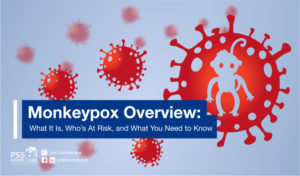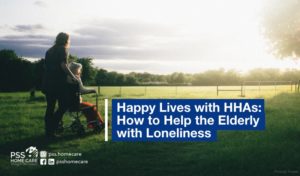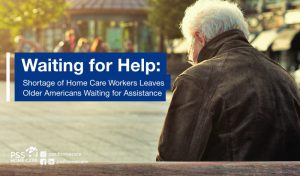Monkeypox Overview:
What It Is, Who’s At Risk, and What You Need to Know

What is monkeypox?
According to the World Health Organization (WHO), monkeypox is caused by the monkeypox virus. Monkeypox is transmitted from animals, such as rodents, squirrels, and primates, to humans. Cases are most commonly seen in central and west Africa, especially in places near tropical rainforests.
Who are at risk of contracting monkeypox?
- Immunucompromised individuals or people with severe diseases
- Pregnant and breastfeeding women
- Older individuals
- Children eight years and younger
- People who eat improperly or inadequately cooked meat and other animal products of monkeypox-infected animals
- Those who live in or near tropical rainforests that house monkeypox-infected animals
- Those who may be exposed to or live near infected animals
- Health workers who are treating people infected with monkeypox
- Household members of people infected with monkeypox
How can human-to-human monkeypox transmission occur?
Monkeypox can be transmitted via close physical contact with monkeypox-infected humans via respiratory secretions, skin lesions, and even respiratory droplets by means of prolonged face-to-face contact.
What are the signs and symptoms of monkeypox?
The Centers for Disease Control and Prevention (CDC) states that monkeypox symptoms resemble that of a milder case of smallpox. However, the difference is that those who have monkeypox have swollen lymph nodes.
Monkeypox symptoms include fever, headache, muscle and back pain, rashes, swollen lymph nodes, chills, and exhaustion. It usually takes 7 to 14 days for monkeypox symptoms to apear from the time of infection.
How long does monkeypox last?
Typically, monkeypox lasts for two to four weeks.
Is there a vaccine for monkeypox?
Currently, the CDC, recommends Jynneos — a two-dose vaccined that has been approved by the FDA since 2019. It helps prevent monkeypox in people 18 and older. ACAM2000 is another vaccine option for monkeypox prevention. However, it is known to have serious side effects, including vomiting, shortness of breath, diarrhea, and constipation.
Aside from getting vaccinated, how can you prevent yourself from getting sick with monkeypox?
The CDC recommends the following steps to take to avoid becoming ill from monkeypox:
- Isolate a monkeypox patient from immunocompromised individuals or anyone who could be at risk of contracting the virus.
- If you are caring for a monkeypox patient, wear personal protective equipment (PPE) and practice good hand hygiene.
- Wear PPE when washing soiled materials such as bedding, towels, and clothes of a monkeypox patient.
- Avoid contact with animals who could be carriers of the virus.
Caring is our Culture
At PSS Home Care, we provide top-notch respite care and home care to older adults, as well as people living with disabilities, chronic illnesses, or cognitive impairments. Our home health aides help our clients with activities of daily living such as bathing, dressing, and grooming, among many others. They also prepare healthy meals and oversee the administration of prescribed medication. These and more are what make PSS Home Care’s brand of compassionate care exceptional.
For more information about our home care services, contact us at 718-752-9833. We’d be glad to discuss possible care options that best suit your loved ones’ needs today.
Check out our other articles
Monkeypox Overview: What It Is, Who’s At Risk, and What You Need to Know
Monkeypox Overview:What It Is, Who’s At Risk, and What You...
Read MoreLiving and Caring: Improving Patient and Caregiver Quality of Life with Respite Care
Living and Caring: Improving Patient and Caregiver Quality of Life...
Read MoreHappy Lives with HHAs: How to Help the Elderly with Loneliness
Happy Lives with HHAs: How to Help the Elderly with...
Read MoreWaiting for Help
Waiting for Help: Shortage of Home Care Workers Leaves Older...
Read More



